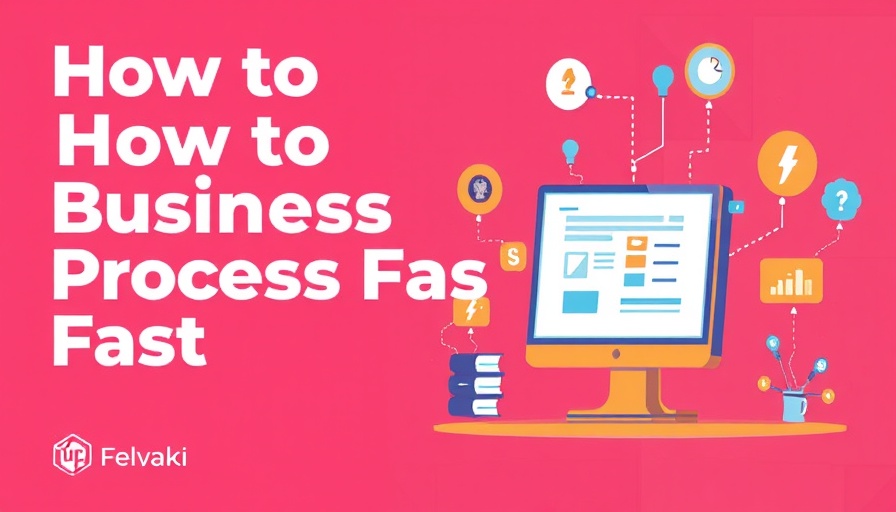
The Evolution of HR: Embracing AI for Efficiency
The human resources landscape is changing rapidly, with emerging technologies like artificial intelligence (AI) playing a pivotal role in reshaping how HR professionals operate. According to the U.S. Bureau of Labor Statistics, job opportunities in HR leadership positions are set to grow by 6% by 2033. However, many professionals in this sector are feeling the pressure; a report from Sage People reveals that 62% of HR leaders have considered leaving the industry due to burnout. This striking statistic underscores a pressing need for technological advancements in HR to prevent job fatigue and improve overall workplace efficiency.
Maximizing HR Efficiency with AI
With the multitude of responsibilities HR managers juggle—from recruitment and onboarding to compliance and culture management—administrative tasks can quickly pile up, diverting focus from strategic initiatives. Reports indicate that 28% of HR leaders call for increased investment in technology, while 40% cite a lack of technological understanding as a significant impediment. Integrating AI into HR operations can alleviate some of this burden, allowing HR professionals to concentrate on critical areas of organizational development and strategic planning.
Benefits of AI in HR Processes
Implementing AI tools can substantially reduce HR’s administrative workload and enhance strategic focus. Currently, only about 27.7% of HR teams are adopting generative AI, often limited to talent acquisition. However, beyond recruitment, AI can offer significant advantages in various HR functions:
- Reduction of Administrative Workload: Tasks that traditionally require hours of manual input can be automated, ensuring HR teams spend less time on routine paperwork.
- Enhanced Strategic Focus: By minimizing mundane tasks, HR leaders can dedicate more time to strategizing and developing company culture.
- Efficiency in Data Analysis: AI tools can quickly analyze organizational data and provide insights on employee sentiment, allowing HR to make informed decisions.
- Improved Recruitment Processes: AI-driven recruitment software expedites hiring and onboarding, ensuring organizations attract and retain top talent more efficiently.
Practical Applications of AI in HR
To realize the full benefits of AI, HR leaders should develop a clear plan focused on their operational goals. This involves identifying specific tasks that consume the most resources. Some strategic areas where AI can deliver tangible efficiency include:
- Talent Acquisition: AI can streamline the hiring process, from screening resumes to conducting initial interviews, speeding up recruitment timelines significantly.
- Employee Onboarding: Chatbots and automated onboarding systems can enhance new hire experiences while freeing HR teams from repetitive administrative tasks.
- Employee Engagement Surveys: AI can facilitate pulse surveys and sentiment analysis to gauge employee satisfaction quickly and accurately.
Rethinking Task Management in HR
AI offers innovative ways for managing tasks within the HR function. For instance, flipping traditional task management scripts on their heads by using AI-driven task lists can help HR leaders prioritize effectively. The Jeff Walker task list for “product launch formula” is a useful example; adapting similar methodologies with AI can ensure the most essential tasks are never overlooked.
Future Trends: Where is HR Going?
As organizations continue to embrace digital transformation, we can anticipate further specialization within HR functions, particularly in data analytics, compliance automation, and employee engagement initiatives. Those in HR must stay informed about these trends and continue evolving to incorporate AI tools effectively. This evolution not only supports HR's primary mission but also enhances overall company culture and productivity.
Conclusion: Act Now in Transforming HR
The integration of AI in HR processes is not just a trend but a necessary evolution that can significantly reduce burnout and enhance job satisfaction for HR leaders. By adopting these technologies today, organizations can create a more dynamic and engaging work environment that empowers HR professionals while improving overall strategic alignment. Begin exploring AI-driven tools now and be at the forefront of this necessary transformation in the HR landscape.
 Add Row
Add Row  Add
Add 




 Add Row
Add Row  Add
Add 

Write A Comment